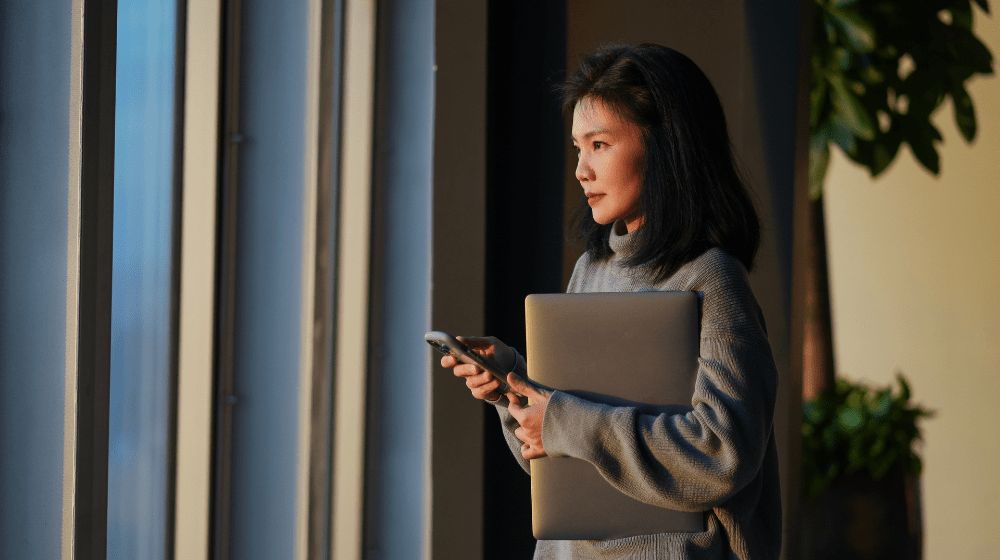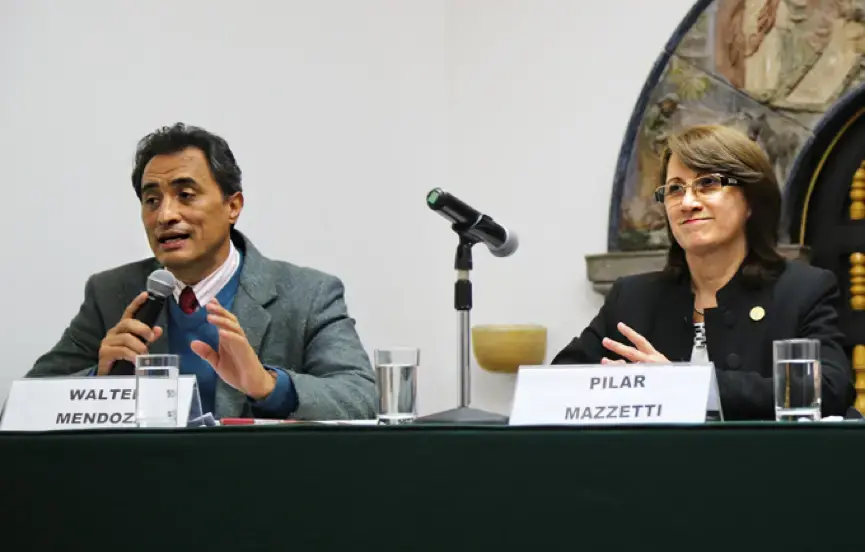Suddenly you have one new family member. You have more work to do and you can’t help thinking about her — all of these challenges take time to get used to.
I’m a television director responsible for producing documentaries and special features. I have a wide range of hobbies. When I was younger, I travelled around the world and didn’t realize back then that eventually the place I would want to be most was home. My biggest interest now is spending time with my child.
It might sound over the top, but every day I’m with my daughter, I can find something cheerful. I still remember one evening in January when I returned home late after work, there was a small cake with candles on the table. My daughter sang a birthday song for me with her dad. I listened to the baby’s voice, and my tiredness instantly melted away. Sometimes, even on a plane, I look at photos of her and edit short videos capturing her everyday life. Having a child has added new commitment to my life. I want to be a good role model for her and give her a promising future. As a result, I’ve become clearer on what I'm striving for.
Looking back, I didn't have a defining moment when I decided to have a child. It might have been the sight of my friend's child gleefully climbing up my husband's legs, or perhaps it was because I had known for a long time that I couldn't conceive naturally – ironically, that made me want to have a child even more. So, I prepared for in-vitro fertilisation early on, having my eggs retrieved and embryos frozen. At the end of 2019, when both my husband and I had more free time, we went to the hospital together and took the next step.
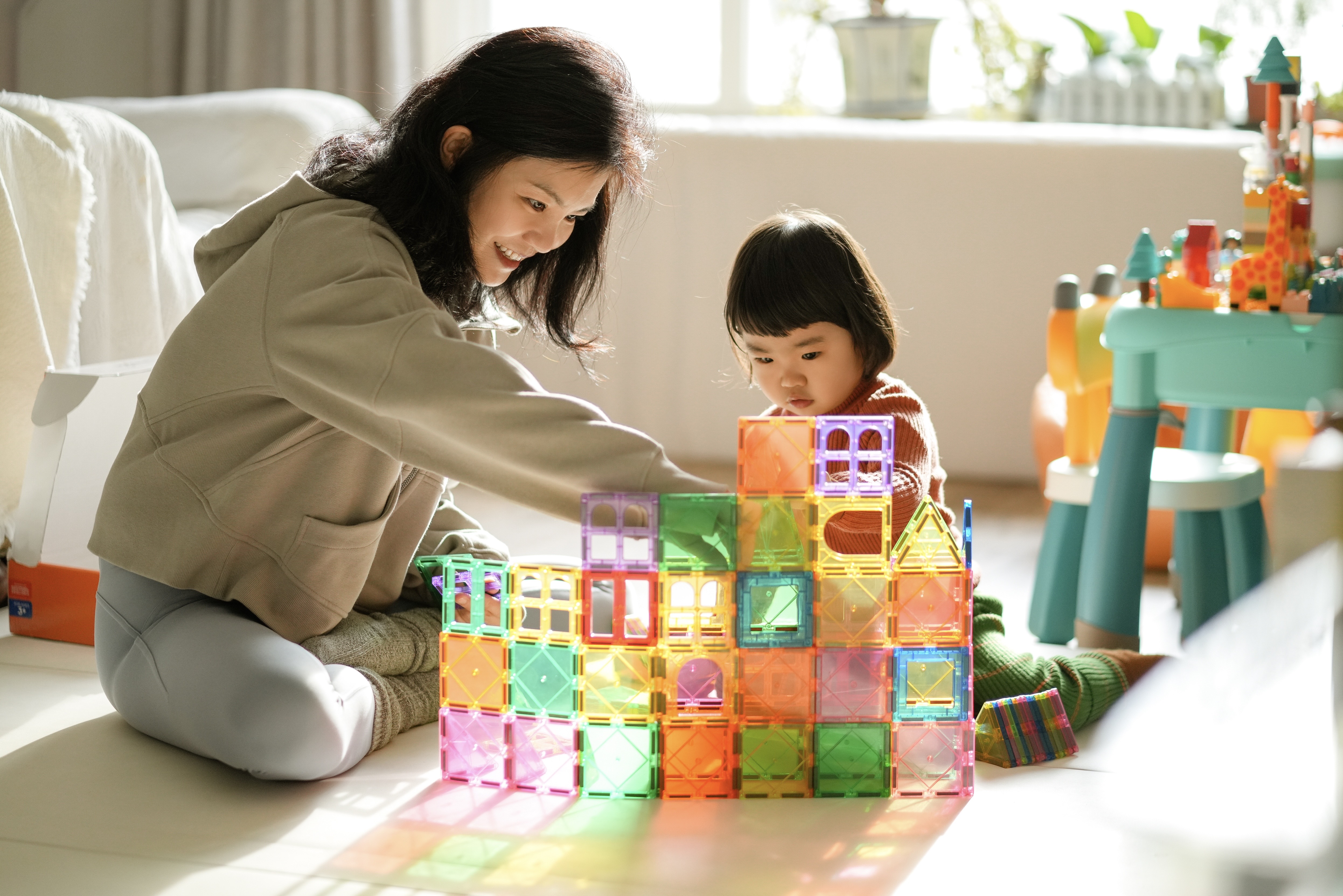
We pray for every delivery. Every baby born safely needs to be cherished, and we should be grateful for it.
Before the embryo implantation, I knew about lots of successful pregnancies and assumed that I would also be successful given that I’m healthy, with quality embryos, and the IVF technology is mature. However, my first attempt failed. Due to the multiple injections for IVF, I gained nearly 20 kilograms, a drastic change in my appearance. Coupled with the unexplained failure, I had only one thought – to try again as quickly as possible, regardless of the investment and sacrifices.
Fortunately, I met Director Ma Caihong from Peking University Third Hospital before the second implantation. After examining me, she quickly identified the issues and arranged a procedure to address my physical problems. Later, she advised me to 'go with the flow,' and stop all the injections and medications. Despite my eagerness for a child, I visited her every day for reassurance. She comforted me after each examination, saying 'learn to accept failure; hard work doesn't always lead to success.'
When my body had nearly recovered, I underwent the second embryo implantation, and this time, it was successful. In total, I went through three general anaesthesia surgeries for IVF – it was a true test of endurance. Fortunately, my pregnancy went smoothly. Despite being considered a high-risk expectant mother, I was mentally prepared for potential challenges. And with meticulous monitoring at the hospital and the professional guidance of healthcare staff, my baby was born safely.
Having gone through this childbirth experience, I can't help but pray for every delivery. Every baby born needs to be cherished, and we should be grateful. Now I really understand the challenges of giving birth and raising a child. In the past, I might offer help to mothers with infants out of politeness, but now, it comes from a genuine desire to provide them with more care and support.
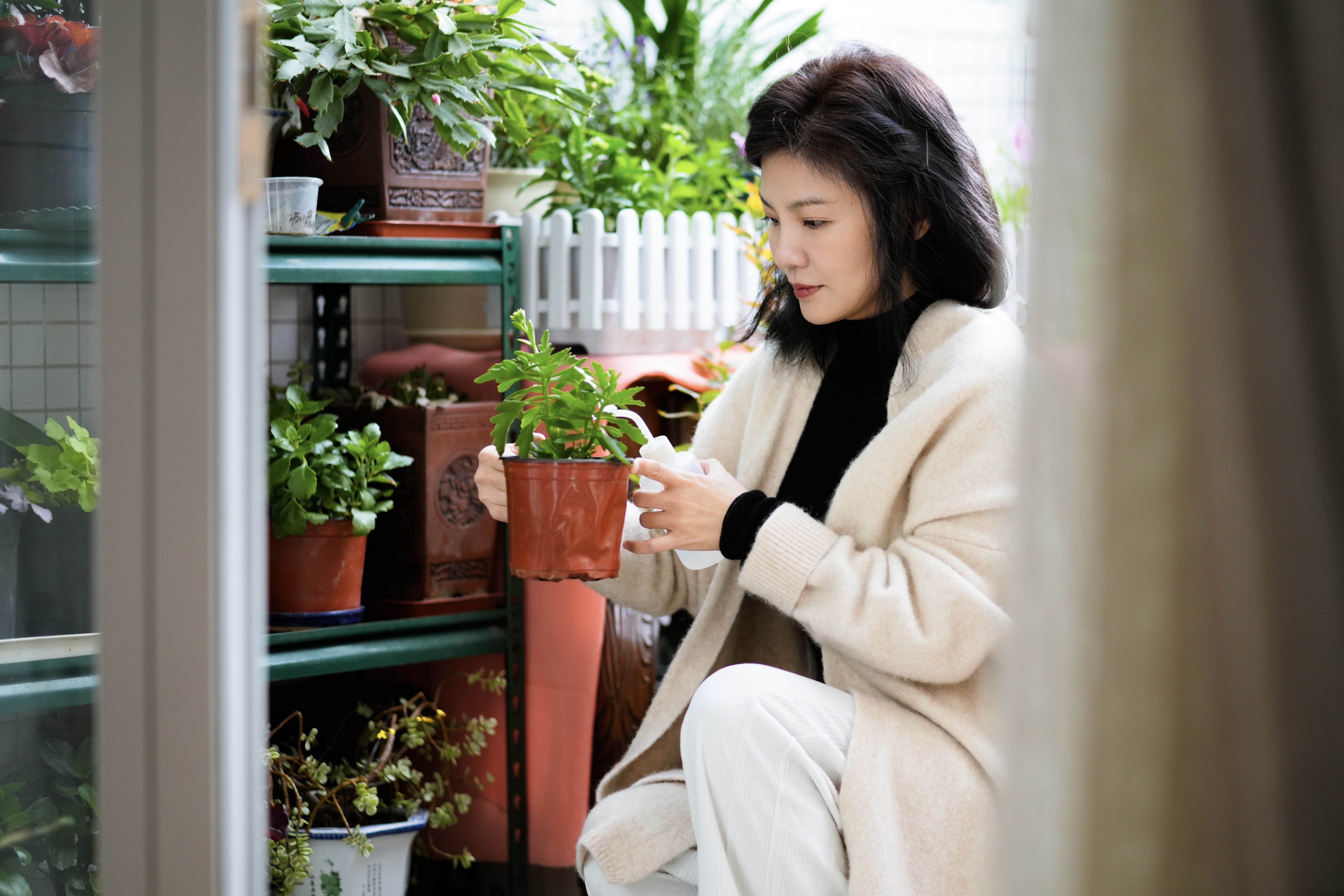
…We join hands to overcome all difficulties, and our relationship has become even stronger.
Many people say that pregnancy is a happy experience, and I realized later that they might mean in comparison to life after the birth. When I left the maternity hospital and started to deal with all the details of raising a child by myself, I broke down several times.
I remember one time when my child was a few months old — I was crying while taking a shower, asking myself: 'How come I don't even have time to wash my hair properly?' Later, I simply cut my hair short to save time. My husband tried to support me, but I challenged him, 'Why are all the changes happening to me, all the burdens are on me? Why don't you feel anything, don't have to breastfeed, don't have to change your lifestyle, can continue travelling for work, and continue being yourself, why?' Like countless other women, the immense physical and psychological changes and pressures that come with the role of a mother overwhelmed me.
So family support is particularly crucial. I'm grateful for my husband's support; while comforting me, he also quietly made changes in his own life. For instance, he paused his sporting hobbies and started to cook. Later on, I noticed that almost all the profiles he followed on social media were food bloggers. He once talked to me, saying that every time he walked out of the kitchen and saw me and our child playing with building blocks in the sunlight, it felt incredibly beautiful. It’s surprising that the challenges of parenthood didn't make us more distant but, instead, it made us even closer after overcoming all the difficulties together.

Balancing life and work? Almost impossible.
Earlier in 2023, the documentary Demographic challenge in China, which I directed, was broadcast. In this film, we visited and documented the stories of seven families, exploring various daycare centres, kindergartens, and schools. We interviewed many national and international experts to learn about China’s efforts in addressing demographic challenges from diverse perspectives. In each family we filmed, I witnessed the past, present, and potential future challenges I might encounter, but more importantly, I saw how brave everyone is in confronting these difficulties. I felt lucky to direct a programme on this topic.
In terms of how to balance personal life and career development after having a child, my current experience proves that it's almost impossible to do it. On one hand, you have your demanding profession, and on the other hand you have your child who needs care. It’s difficult to do your best at everything. When we were growing up, we were educated to excel, and very often, it’s just about our study or work. Most of us, after becoming mothers, struggle to excel both as individuals and as in the new role of a mother. There are numerous online criticisms targeting women who, after becoming mothers, seem to lose their identity and talk about their children all the time and emit a 'mom vibe,' and so forth. In fact, nobody wants to lose themselves, but any responsible mother learns to embrace the role of motherhood. It doesn't mean we give up our personal life, nor pursue a perfect life in all aspects. Feeling overwhelmed, neglecting our appearance, or feeling inadequate - these are all normal. Suddenly you have one new family member. You have more work to do and you can’t help thinking about her — all of these challenges take time to get used to.
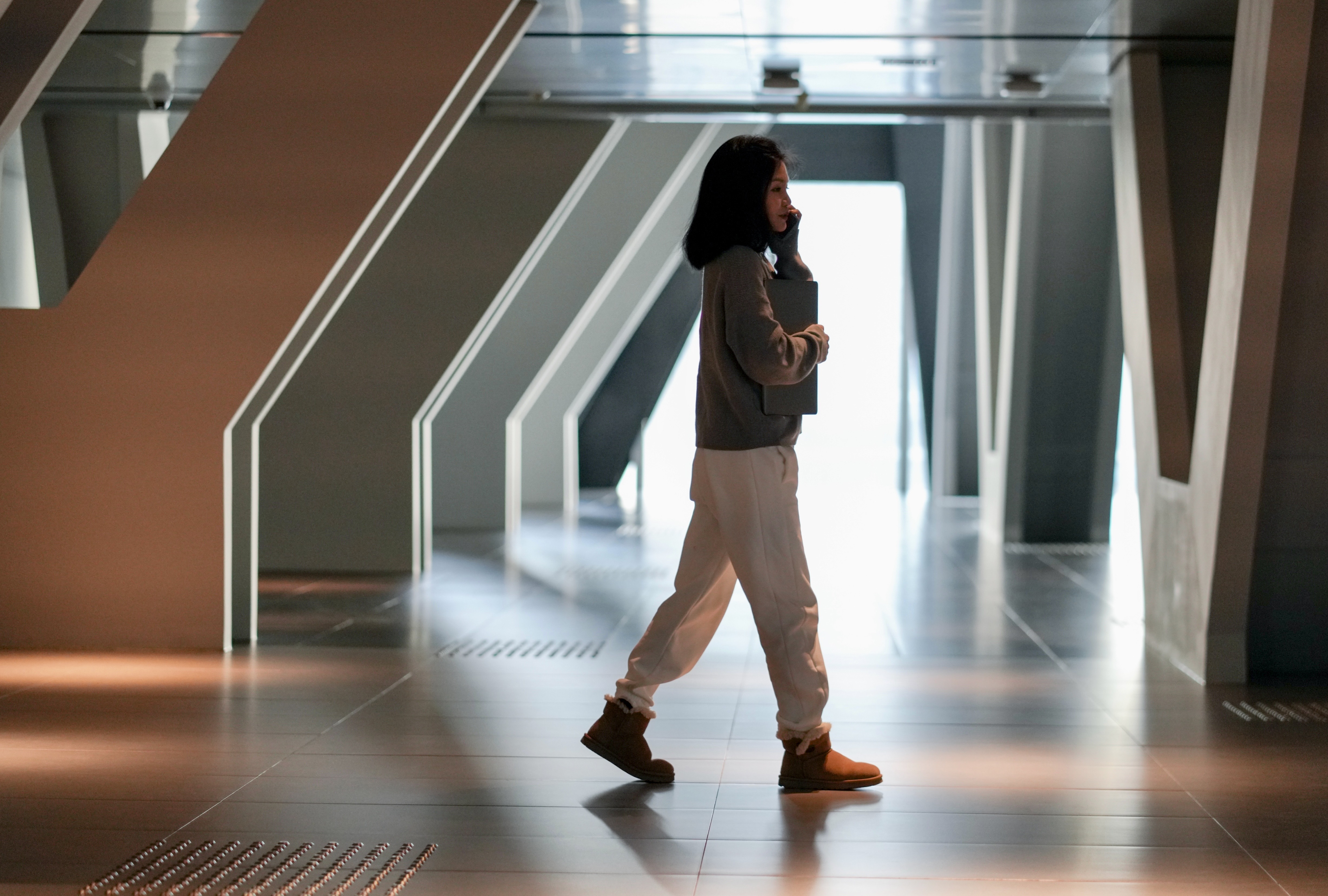
Before giving birth, many friends told me that, 'Life is not easy, why have a child? Living a carefree life as a DINK couple is happier, isn't it? If you're not fully prepared, don't have kids.' I understand their concerns, but I maintain a positive attitude towards the future. Being a mother involves facing many first-time experiences. Is it possible to be fully prepared for each experience? I don’t think so. Can one choose to avoid experiencing anything just because she is not fully prepared? That's not my style. There is always a solution to a problem.
For me, becoming a mother is a completely unique life experience, but it's solely my personal choice. Whether and when to have a child should be a woman’s free choice. Modern medical technology is highly advanced, age isn't a barrier, and it's never too late. Whenever one wants to have a child, that is the right moment.

